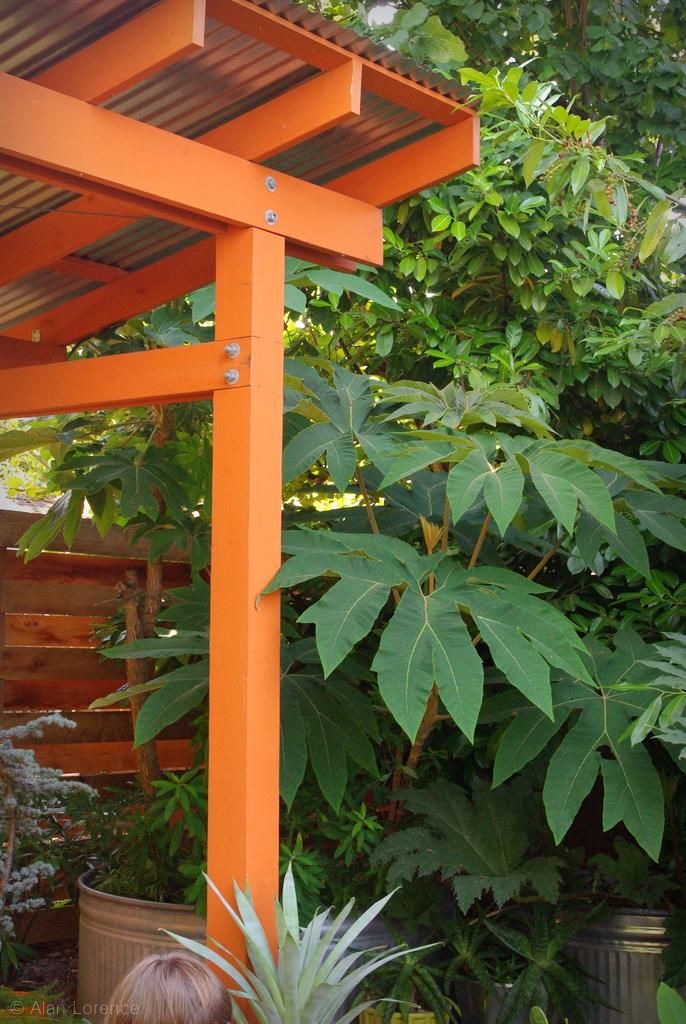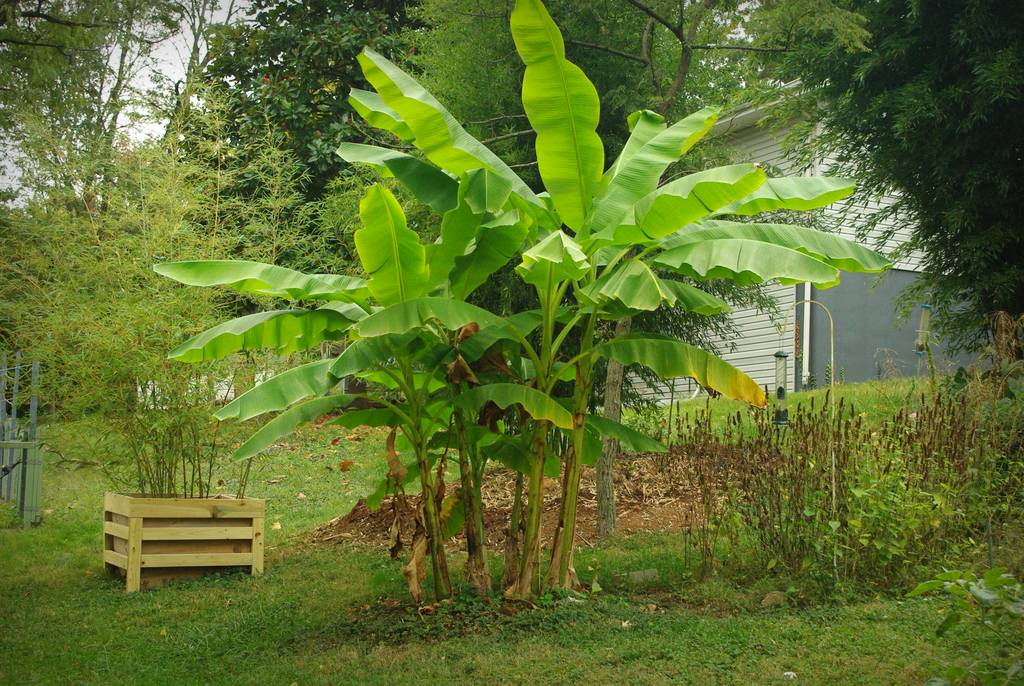I'm considering making one of those "questionable" purchases very soon. As in the next day or two. And yes, for those of you who know the plant shown above, it's Tetrapanax papyrifer.
I've always been drawn to large-leaved plants, and this is one that's been on my big-leaf radar for a few years, but I had only seen it in photos...
 |
| This is it in Loree's Danger Garden |
...until July's trip to Portland. All of the best gardens in Portland grow this beauty, regardless of its propensity to "run" (spread underground) and of its potentially dangerous indumentum (fuzz on the stems) which will cause problems if inhaled or gotten into eyes.
I've read several different things about this plant's hardiness, how some people grow it in zone 6 (same zone as we have in St. Louis), while others say it's only hardy to zone 8 or possibly 7. I suspect the difference in ratings is due to measurement: it's root-hardy to z6, but if you want the stems to stay alive you better be in z7 or warmer.
If it's anything like my Musa basjoo in that regard...
...I'll be glad to have it die to the roots and burst back forth. I just need to know that it will come back BIG. I'm also wondering if deer will leave it alone. Does anybody know?
The real question is this: how much should I spend to add this plant to my garden?
For plants of questionable hardiness (like some bamboos) the thinking is that you start with as big a plant as you can. It turns out that the wonderful Cistus nursery near Portland (which I visited) currently has 2-gallon specimens of this that they'd ship to me. Unfortunately, the price with shipping comes to the somewhat scary total of $66.
Yes, that's almost $70 for a plant that I'm really not sure will survive in my garden!
Another option is to get a tiny one in a 4" pot for $20 plus shipping from another source. That doesn't sound like a great option to me, but I'll save at least $30.
A third option that seems crazy is to wait a month or even until spring when Cistus tells me they will have smaller (cheaper) 1-gallon plants available. (It's only crazy because I tend to become impatient, and fall is a great time to plant, right?)
The fourth option is that somebody who grows this will say "hey, I have suckers that you can have!" -- but I've heard reports that this plant can be difficult to divide correctly, a bit like many sumacs, so I'm not sure how likely this is.
So I ask you: which option would you go for?
.


It depends how impatient you are Alan, or rather how excited you are in getting hold of this plant :) with the summer heat and humidity you guys get there it will size up very quick from the ground, much like your bananas. And they grow so quick that even starting with a small plant it will grow to a very considerable size by the tail end of summer. So perhaps go for option three? Oh and they propagate really easy, all you need is a piece of rhizome sometimes....:)
ReplyDeleteI'd wait until spring so that you get maximum enjoyment out of the plant. I wonder if, at this time of year, it will have time to get enough roots into your soil to get through the winter. Some people propagate this with no problem but I have little luck dividing mine. However, I'd be happy as a clam to add some tetrapanax starts to your package of plume poppies when I send them in the spring to see if you have better luck.
ReplyDeleteI would wait until spring. I once planted one in the fall and it never came back. Spring will give your plant(s) a chance to get established before winter. Something else for you to think about: in my experience when it's froze back to the ground is when it decides it needs to send out babies. In a "normal" winter, not so much. So if yours is regularly getting froze back you might have more babies than the rest of us do (a good, or bad, thing depending). Also in my experience it's no trouble at all to dig unwanted babies. A heck of a lot easier than bamboo! Now go over to my post today and check out all those AMAZING tetrapanax. I was in awe...
ReplyDeleteI've had mostly success in dividing my Tetra. I wish I could remember which time of year. My original one died this past winter; but sent out many pups, which I now need to dig up. I'm in zone 7, a bit colder and more exposed than Portland. Good luck , I'm sure plenty of gardeners in the Portland area would be happy to send you a pup, I certainly would !
ReplyDeleteBTW to answer your questions, you should be able to get this plant for free. These things grow VERY fast so don't be afraid to start with a small plant. Suckers are tricky to root because they come up from very deep, and usually pull out with a long bare stem with no roots. You can dig a second-year sucker that has established some roots of its own, but I suspect you can also root the suckers if you remove most of the foliage and keep it fairly shaded. I think the mistake most people make is that they try to root the suckers with the leaves still on, but the rootless stem simply can't support them.
ReplyDeleteThanks for the input everybody. For once the best decision seems to be the easiest (most procrastination), and that is wait until spring.
ReplyDeleteDC Tropics: thanks for the info about the different "varietals" (I don't like to say "clones" because they're not identical, are they?) I'll see if I can get the hardier version.
It does have wonderful large leaves! I am glad you are getting such great advice. : )
ReplyDelete